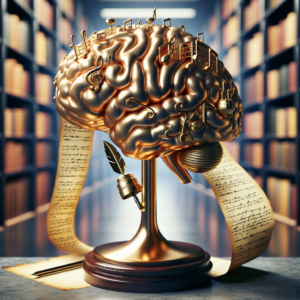Groundbreaking Copyright Rulings: A New Era of Intellectual Property Rights
[caption id="attachment_35123" align="alignnone" width="608"] Intellectual Property[/caption]
In recent months, a series of groundbreaking copyright rulings have emerged from courts around the world, signaling a transformative shift in the landscape of intellectual property rights. These decisions not only redefine the boundaries of copyright law but also reflect the complexities of a digital age where content creation and distribution are evolving at an unprecedented pace. As stakeholders in the creative economy grapple with these changes, understanding the implications of these rulings becomes essential for both creators and consumers alike.
Understanding the Impact of Recent Copyright Rulings on Intellectual Property Law
The recent copyright rulings have fundamentally altered the framework of intellectual property law, emphasizing the need for a more nuanced approach to copyright in the digital era. Courts have increasingly recognized the challenges posed by technological advancements, leading to a re-evaluation of traditional copyright principles. These rulings underscore the importance of balancing the rights of creators with the public's access to information and culture. As a result, the legal landscape is shifting towards a more flexible interpretation of copyright, which may foster innovation while still protecting the rights of original creators.
Key Cases That Have Redefined Copyright Standards in the Digital Age
Several landmark cases have emerged as pivotal in redefining copyright standards. Notably, the ruling in Google LLC v. Oracle America, Inc. clarified the extent to which software code can be considered fair use, setting a precedent for future cases involving digital content. Similarly, the BMG Rights Management v. Cox Communications case highlighted the responsibilities of internet service providers in monitoring copyright infringement, establishing a framework for accountability in the digital space. These cases, among others, have not only shaped legal interpretations but have also influenced how creators and companies approach copyright compliance and enforcement.
The Role of Technology in Shaping Modern Copyright Interpretations
Technology plays a crucial role in shaping modern copyright interpretations, as it continuously alters the way content is created, shared, and consumed. The rise of social media platforms, streaming services, and user-generated content has prompted courts to reconsider the applicability of traditional copyright doctrines. For instance, the proliferation of artificial intelligence in content creation raises questions about authorship and ownership, challenging existing legal definitions. As technology evolves, so too must the legal frameworks that govern intellectual property, necessitating ongoing dialogue between lawmakers, legal experts, and industry stakeholders.
Implications of Groundbreaking Rulings for Creators and Content Distributors
The implications of these groundbreaking rulings are profound for both creators and content distributors. For creators, the new interpretations of copyright law may provide greater protection for their works, particularly in the realm of digital content. However, they also face the challenge of navigating a more complex legal environment where the boundaries of fair use and infringement are less clear. For content distributors, these rulings necessitate a reevaluation of their business models and practices, as they must ensure compliance with evolving copyright standards while still fostering an environment conducive to innovation and creativity.
Navigating the New Landscape of Copyright: Challenges and Opportunities Ahead
As the landscape of copyright law continues to evolve, stakeholders must navigate a myriad of challenges and opportunities. One significant challenge is the potential for increased litigation as creators seek to assert their rights in a more ambiguous legal environment. Additionally, the rapid pace of technological change may outstrip the ability of lawmakers to keep up, leading to gaps in legal protections. Conversely, these changes also present opportunities for collaboration and innovation, as creators and distributors explore new ways to monetize content while respecting intellectual property rights. The key will be finding a balance that encourages creativity while safeguarding the rights of all parties involved.
Future Trends in Copyright Law: Predictions for the Next Decade
Looking ahead, several trends are likely to shape the future of copyright law over the next decade. One prediction is the continued rise of international harmonization of copyright standards, as countries recognize the need for cohesive legal frameworks in an increasingly globalized digital economy. Additionally, the integration of blockchain technology may revolutionize copyright management by providing transparent and immutable records of ownership and usage. Finally, as societal attitudes towards copyright evolve, there may be a shift towards more open-access models that prioritize public access to knowledge and culture, challenging traditional notions of ownership and exclusivity.
In conclusion, the recent groundbreaking copyright rulings mark a significant turning point in the realm of intellectual property rights, reflecting the complexities of a rapidly changing digital landscape. As courts grapple with the implications of technology on copyright law, both creators and content distributors must adapt to a new reality that balances protection with accessibility. The future of copyright law promises to be dynamic and multifaceted, requiring ongoing engagement from all stakeholders to ensure that the rights of creators are upheld while fostering an environment conducive to innovation and cultural exchange.
